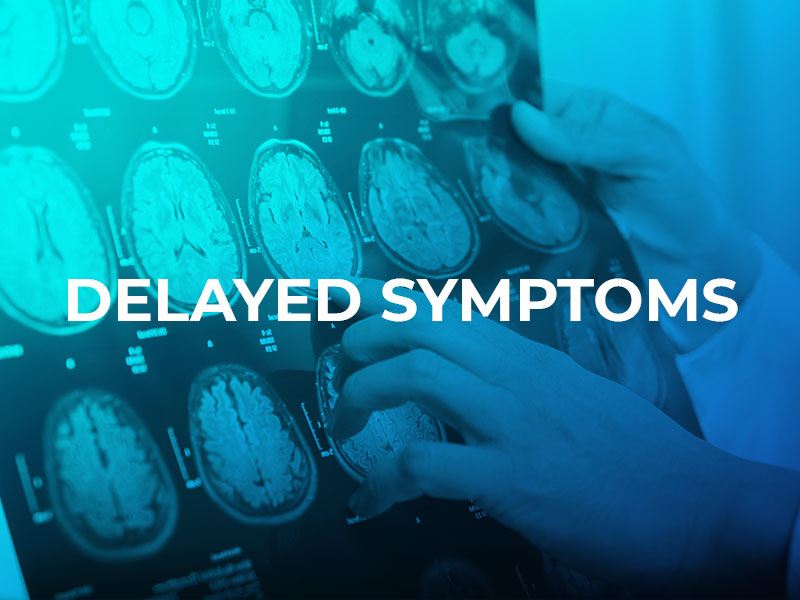What if I Experienced Delayed Symptoms After an Accident?
You should always see a doctor after a car accident. However, many people do not feel any pain at all after a car crash. This can happen in both minor and major crashes. Our bodies are designed to pump out adrenaline in the aftermath of any incident that it thinks could cause us harm. This happens after a car crash.
In many cases, we begin to feel pain hours, and even days after a car crash that we did not anticipate. When this happens, you need to know what to do next.

Why you should seek medical assistance immediately
It is always recommended that anyone involved in a car crash see their doctor, even if the injuries do not seem serious. Not only is this good for your well-being, but it helps establish a link between the accident and your injuries. This is important when it comes to injury claims with insurance companies as well as potential personal injury lawsuits.
How delayed symptoms can cause problems for you
Delayed onset of symptoms can be scary and range in severity. It goes without saying that you need to seek medical assistance immediately if you begin to feel pain in the aftermath of a crash. Never take any chances with your health.
Delays in treatment could cause problems with insurance settlements and is called a gap in treatment. The insurance company of the at-fault driver could say that you failed in your duty to get the medical treatment as quickly as possible and caused further expenses. They could even say that your injuries were caused by something else and not the car accident in question.
What are some common delayed symptoms of a car accident?
Some of the most common types of delayed symptom injuries include:
- Soft tissue injuries. Soft tissue damage can happen anywhere on our bodies and is not always immediately apparent.
- Internal organ damage. Damaged internal organs often bleed slowly inside our bodies, and we may not know anything is wrong until a serious medical situation arises.
- Traumatic brain injuries. These injuries range in severity and include concussions. Symptoms of these injuries, particularly if there is gradual bruising or even internal bleeding, can take hours to manifest. They can be deadly in cases of brain swelling.
- Spinal disc injuries. These injuries are not often noticed right away and must be diagnosed with MRIs and EMG tests.
- Whiplash. This is an injury that commonly occurs in rear-end accidents and involved damage to the neck.
What can I do now?
In all accidents, you should consider securing an attorney to help. The insurance companies are not your friend and will look to pay as little as possible in a settlement. They will use a gap in treatment to offer even less, or even nothing at all.
Make sure you do seek the medical care you need, even if you delayed treatment for a bit. Obtain copies of all medical records and follow all treatment plans your doctor prescribes. It may be necessary for your attorney to hire an expert medical witness to examine your medical records and testify that your injuries were caused by the accident and not something else.
Do not sign anything the insurance company puts in front of you if you are injured and have not spoken to a knowledgeable and experienced attorney. You may be entitled to much more than what the insurance company is offering.